Speaker
Description
The material properties of Silicon-Carbide (SiC) make it a promising candidate for application as particle detector at high beam rates. In comparison to Silicon (Si), the increase in charge carrier saturation velocity and breakdown voltage allow for high time resolution while mitigating pile ups. The larger bandgap improves radiation hardness and suppresses dark current. The presented project aims to accomplish the development of such a detector, together with associated readout electronics.
Current simulation tools are challenged regarding SiC due to its low carrier density, anisotropic effects and insufficient knowledge of material parameters. We present various computational approaches based on the tools TCAD and Weightfield and compare them with experimental results carried out with a 50μm thick SiC pad sensor.
UV-TCT measurements on neutron irradiated samples deliver insight into intrinsic detector properties, while high-rate detector characteristics have been determined with protons and Carbon ion beams for rates up to several hundred MHz, which have been conducted at the ion beam cancer treatment facility MedAustron.
To take full advantage of the fast charge collection of SiC, we are developing advanced single channel readout electronics to be used in beam tests to study the material properties further. Moreover, the developments towards a multi-channel ASIC for using SiC as high-rate beam intensity and position monitor will be shown.
